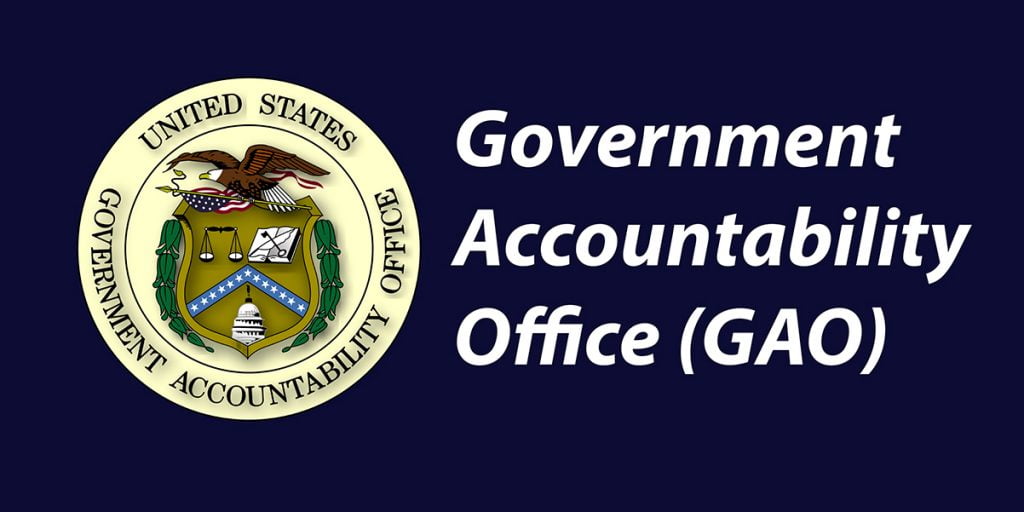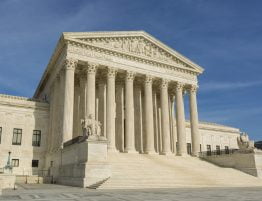
The Government Accountability Office (“GAO”) has released a Report concluding that the presence of predispute arbitration agreements (“PDAA”) has definitely impacted servicemembers in consumer and employment matters, but to what extent is not known at this time.
The 29-page GAO-21-221, Servicemember Rights: Mandatory Arbitration Clauses Have Affected Some Employment and Consumer Claims but the Extent of Their Effects is Unknown (Feb. 2021), was authorized by a provision in the National Defense Authorization Act for Fiscal Year 2020 because of concerns that PDAAs “may not afford servicemembers certain employment and consumer rights.” Specifically, the GAO was to study the impact of mandatory arbitration agreements on servicemembers’ ability to pursue claims under the Uniformed Services Employment and Reemployment Rights Act (“USERRA”) and the Servicemembers Civil Relief Act (“SCRA”).
Limited Scope and Limited Results
The Report examined (ed: repeated essentially verbatim): 1) the effect mandatory arbitration has on servicemembers’ ability to file claims and obtain relief for violations of USERRA and SCRA; and 2) the extent to which data are available to determine the prevalence of mandatory arbitration clauses and their effect on servicemember claims. Alas, the answers are a somewhat inconclusive: “some and not much.”
Effect of Mandatory PDAAs on Servicemembers’ Ability to File Claims and Obtain Relief for USERRA and SCRA Violations
After noting that several federal courts have upheld the validity of PDAAs involving both statutes, the Report’s summary adds: “Although we reviewed federal court cases that upheld the enforceability of these clauses, Department of Justice (DOJ) officials said mandatory arbitration clauses have not prevented DOJ from initiating lawsuits against employers and other businesses under USERRA or SCRA. However, DOJ officials noted that these clauses could affect their ability to pursue USERRA claims against private employers on behalf of servicemembers. Servicemembers may also seek administrative assistance from federal agencies, and mandatory arbitration clauses have not prevented agencies from providing this assistance. For example, officials from DOJ, as well as the Departments of Defense (DOD) and Labor (DOL), told us they can often informally resolve claims for servicemembers by explaining servicemember rights to employers and businesses.”
Data Availability on PDAA Prevalence and Impacts
On the second prong, the summary concludes: “Data needed to determine the prevalence of mandatory arbitration clauses and their effect on the outcomes of servicemembers’ employment and consumer claims under USERRA and SCRA are insufficient or do not exist.” Why not? Says the GAO: “Officials from DOD, DOL, and DOJ told us their data systems are not set up to track these clauses. Further, no data exist for claims settled without litigation or abandoned by servicemembers. Finally, data on arbitrations are limited because they are often private proceedings that the parties involved agree to keep confidential.”
FINRA was Involved
FINRA was listed as one of the cooperating agencies, and is referenced in the discussion of arbitration confidentiality and privacy: “… some arbitration administrators may be required to report general data and information about the arbitrations they administer. In addition, the Financial Industry Regulatory Authority (FINRA), a self-regulatory organization responsible for regulating securities firms doing business in the United States that also administers arbitrations related to securities, publishes information about arbitrations that result in awards. This may include an explanation of the rationale for the awards and the general reasons for the arbitrators’ decision” (footnotes omitted).
A Blast from the Past?
We reported in SAA 2017-21 (May 31) on Ziober v. BLB Resources, Inc., 839 F.3d 814 (2016), Cert. denied 137 S.Ct. 2274 (2017), where the Supreme Court let stand decisions by the Fifth, Sixth, and Eleventh Circuits concluding that neither the USERRA’s express language nor its legislative history evidenced Congressional intent to preclude enforcement of the PDAA in a returning serviceperson’s employment agreement. The Court also observed that the USERRA was passed in 1994, well after several SCOTUS cases supporting the Federal Arbitration Act, (“FAA”) including Gilmer v. Interstate/Johnson Lane Corp., 500 U.S. 20 (1991). In other words, if these SCOTUS decisions concerned Congress, it could have done something about it. And we reported in SAAs 2019-21(May 29) & -20 (May 22), that Rep. David N. Cicilline (D-RI) in May 2019 introduced H.R. 2750, the purpose of which was to “amend title 9 of the United States Code to prohibit predispute arbitration agreements that force arbitration of certain disputes arising from claims of servicemembers and veterans.” The proposed Justice for Servicemembers Act, which died in the last Congress, would have amended the FAA to add a Chapter 4 providing that “no predispute arbitration agreement or predispute joint-action waiver shall be valid or enforceable with respect to a dispute relating to disputes arising under chapter 43 of title 38 [the Uniformed Services Employment and Reemployment Rights Act of 1994] or the Servicemembers Civil Relief Act.” Class action waivers were also to be banned.
(ed: *Where this Report will lead is anyone’s guess. In our view, there’s no clarion call for action. **The April 5 Ballard Spahr LLP Blog has an analysis of the Report.)

This post first appeared on the Securities Arbitration Alert blog. The blog’s editor-in-chief is George H. Friedman, Chairman of the Board of Directors for Arbitartion Resolution Services, Inc.





